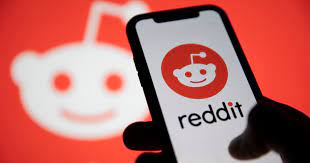The founding story
In 2003, University of Virginia gaming roomies Alexis Ohanian (History Major) and Steve Huffman (CS major) were starstruck with the entrepreneurial dream. Their make-the-world-a-better-place idea at the time was a food-ordering app named mmm😋(MyMobileMenu).
Alexis and Steve spent a year doing "market research," creating databases of restaurants in Virginia, traveling to entrepreneurship events all over the world, registering a company, opening a bank account...basically everything they could do except actually launching the thing.
During their senior year, Steve's girlfriend told him that Paul Graham(PG) was coming to Boston to give a talk about startups during their spring break.
Steve knew PG through his book On Lisp, but Alexis had no clue who Paul Graham was. Steve decided it would be worth their time to travel all the way to Boston to get his book signed and maybe learn a thing or two about how to get mmm off the ground. They packed up, traveled all the way to Boston and after Paul was done with his talk..they approached him with a Hail-Mary
Hey, Dr. Graham and told him it would be worth the cost of buying him a drink if he'd listen to us talk about our start-up. He said, "You came all the way up from Virginia? Sure - Alexis Ohanian recounting the founding story
Getting into YC
This coffee chat would change the lives of Alexis and Steve and make them millionaires in their early twenties. They spent the time pitching mmm(not to be confused with mmhmm) and how they were going to make waiting in line a thing of the past. PG got excited. Two hours into their conversation, Paul invited them to interview for the new startup incubator's first-ever batch he was building called YCombinator.
"I get a call from Paul. He says, "I'm sorry, we made a mistake. We don't like your idea, but we like you guys." We got off the train, and I was able to sweet-talk the Amtrak lady into not charging us to turn around. In our conversation, Paul said, "You guys need to build the front page of the Internet." That was all Paul, and that became Reddit." - Alexis Ohanian
Fun Fact: Alexis drew the first Snoo (Reddit's mascot) during his senior year in college (University of Virginia), even before the company's idea. He used Illustrator and the touchpad on his laptop to draw Snoo.
The launch that the founders did not know about.
After spending a year researching their food delivery concept, YC and PG gave the Reddit team about 2 weeks to launch "the homepage of the internet."
To take a step back, at the time, this was not an entirely green field; the competition was steep. Digg (which had a similar ambition) announced a "large" series A of $2.8m (yup, that was considered "large" back then) just as Steve and Alexis were getting started on Reddit. To add salt to injury, Digg was founded by a minor tech celebrity Kevin Rose. The deadline and pressure from YC stemmed from this competitive pressure and perhaps arguably the fact that they wanted to have some demonstrable wins from their first ever batch.
At the end of the two weeks, Paul sent the cofounders a scathing email saying
You guys hadn't launched yet because you are incompetent in which case you are hosed or you re just worried about being perfect in which case you are still hosed because you would still need to launch it anyway and need to deal with the fact that it is not perfect - Alexis Recaps in a youtube interview
I didn't know he was going to do that," Steve says. "The Slashdot comments were panning Reddit. This one guy wrote a blog post about how sh*tty Reddit was. It was a frustrating day.
With that unplanned launch, just a day in, Reddit got over their first 1000 user mark.
Deep Dive 🧐: Launching before you're ready.
The disappointing road to 2k.
Q: You know what's worse than a launch you, the founders, did not know about?
A: What comes next.
With no plan in mind on how to acquire users, a barely functioning website that requires powerful network effects, and a competitor breathing down your neck, the next few months were rough...to say the least.
The best mechanic the founders could come up with- to Bruteforce Reddit to the critical mass- was to create fake users…..lots and lots of fake users.
Every day, Alexis and Ohanian would use the admin view they created on the website, allowing them to quickly attach a new fake user to any new post they create. They posted dozens and dozens of new links everyday to make the website seem more legit than it was.
On a superficial level, the hundreds of fake users lent Reddit credibility that they needed, but on a deeper level, it did two critical things:
1- It set the tone for the website. In many instances of building a company, looking for the unintended use cases of your product can be a powerful signal for future feature and product development. But on a pseudonymous community-first website, you can see how that can be problematic. Having the founder DNA firmly embedded throughout the early history of posts set the culture, the unhidden rules, and the expectation of what Reddit is very clearly and powerfully.
Showing new users how they ought to use the platform is arguably a lot more effective than telling them through FAQs, guidelines, tutorials..etc. (who reads those anyway 🤷♂️)
2- Made people feel they were part of something real. With hundreds of (fake) users each having a distinct digital presence, user #003 would feel they were part of something so much bigger than they were; no one wants to be a part of a ghost town, but some, I would suspect, would love to be a part of a vibrant emerging community on the internet.
Fun Fact: Some of these suspected fake users are rabble, Meegan & lampshade
Deep Dive 🧐: Establishing Trust



Comments
Post a Comment